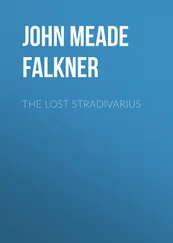John Barth - Lost in the Funhouse
Здесь есть возможность читать онлайн «John Barth - Lost in the Funhouse» весь текст электронной книги совершенно бесплатно (целиком полную версию без сокращений). В некоторых случаях можно слушать аудио, скачать через торрент в формате fb2 и присутствует краткое содержание. Год выпуска: 2014, ISBN: 2014, Издательство: Knopf Doubleday Publishing Group, Жанр: Современная проза, на английском языке. Описание произведения, (предисловие) а так же отзывы посетителей доступны на портале библиотеки ЛибКат.
- Название:Lost in the Funhouse
- Автор:
- Издательство:Knopf Doubleday Publishing Group
- Жанр:
- Год:2014
- ISBN:978-0-8041-5250-1
- Рейтинг книги:3 / 5. Голосов: 1
-
Избранное:Добавить в избранное
- Отзывы:
-
Ваша оценка:
- 60
- 1
- 2
- 3
- 4
- 5
Lost in the Funhouse: краткое содержание, описание и аннотация
Предлагаем к чтению аннотацию, описание, краткое содержание или предисловие (зависит от того, что написал сам автор книги «Lost in the Funhouse»). Если вы не нашли необходимую информацию о книге — напишите в комментариях, мы постараемся отыскать её.
Lost in the Funhouse — читать онлайн бесплатно полную книгу (весь текст) целиком
Ниже представлен текст книги, разбитый по страницам. Система сохранения места последней прочитанной страницы, позволяет с удобством читать онлайн бесплатно книгу «Lost in the Funhouse», без необходимости каждый раз заново искать на чём Вы остановились. Поставьте закладку, и сможете в любой момент перейти на страницу, на которой закончили чтение.
Интервал:
Закладка:
Fill in: His father’s raised eyebrows when he announced his decision to do the funhouse with Magda. ambrose understands now, but didn’t then, that his father was wondering whether he knew what the funhouse was for —specially since he didn’t object, as he should have, when Peter decided to come along too. The ticket-woman, witchlike, mortifying him when inadvertently he gave her his name-coin instead of the half-dollar, then unkindly calling Magda’s attention to the birthmark on his temple: “Watch our for him, girlie, he’s a marked man!” She wasn’t even cruel, he understood, only vulgar and insensitive. Somewhere in the world there was a young woman with such splendid understanding that she’d see him entire, like a poem or story, and find his words so valuable after all that when he confessed his apprehensions she would explain why they were in fact the very things that made him precious to her … and to Wester Civilization! There was no such girl, the simple truth being. Violent yawns as they approached the mouth. Whispered advice from an old-timer on a bench near the barrel: “Go crabwise and ye’ll get an eyeful without upsetting!” Composure vanished at the first pitch: Peter hollered joyously, Magda tumbled, shrieked, clutched her skirt; Ambrose scrambled crabwise, tight-lipped with terror, was soon out, watched his dropped name-coin slide among the couples. Shamefaced he saw that to get through expeditiously was not the point; Peter feigned assistance in order to trip Magda up, shouted “I see Christmas!” when her legs went flying. The old man, his latest betrayer, cackled approval. A dim hall then of black-thread cobwebs and recorded gibber: he took Magda’s elbow to steady her against revolving discs set in the slanted floor to throw your feet out from under, and explained to her in a calm, deep voice his theory that each phase of the funhouse was triggered either automatically, by a series of photoelectric devices, or else manually by operators stationed at peepholes. But he lost his voice thrice as the discs unbalanced him; Magda was anyhow squealing; but at one point she clutched him about the waist to keep from falling, and her right cheek pressed for a moment against his belt-buckle. Heroically he drew her up, it was his chance to clutch her close as if for support and say: “I love you.” He even put an arm lightly about the small of her back before a sailor-and-girl pitched into them from behind, sorely treading his left big toe and knocking Magda asprawl with them. The sailor’s girl was a string-haired hussy with a loud laugh and light blue drawers; Ambrose realized that he wouldn’t have said “I love you” anyhow, and was smitten with self-contempt. How much better it would be to be that common sailor! A wiry little Seaman 3rd, the fellow squeezed a girl to each side and stumbled hilarious into the mirror room, closer to Magda in thirty seconds than Ambrose had got in thirteen years. She giggled at something the fellow said to Peter; she drew her hair from her eyes with a movement so womanly it struck Ambrose’s heart; Peter’s smacking her backside then seemed particularly coarse. But Magda made a pleased indignant face and cried, “All right for you , mister!” and pursued Peter into the maze without a backward glance. The sailor followed after, leisurely, drawing his girl against his hip; Ambrose understood not only that they were all so relieved to be rid of his burdensome company that they didn’t even notice his absence, but that he himself shared their relief. Stepping from the treacherous passage at last into the mirror-maze, he saw once again, more clearly than ever, how readily he deceived himself into supposing he was a person. He even foresaw, wincing at his dreadful self-knowledge, that he would repeat the deception, at ever-rarer intervals, all his wretched life, so fearful were the alternatives. Fame, madness, suicide; perhaps all three. It’s not believable that so young a boy could articulate that reflection, and in fiction the merely true must always yield to the plausible. Moreover, the symbolism is in places heavy-footed. Yet Ambrose M_____ understood, as few adults do, that the famous loneliness of the great was no popular myth but a general truth — furthermore, that it was as much cause as effect.
All the preceding except the last few sentences is exposition that should’ve been done earlier or interspersed with the present action instead of lumped together. No reader would put up with so much with such prolixity. It’s interesting that Ambrose’s father, though presumably an intelligent man (as indicated by his role as grade-school principal), neither encouraged nor discouraged his sons at all in any way — as if he either didn’t care about them or cared all right but didn’t know how to act. If this fact should contribute to one of them’s becoming a celebrated but wretchedly unhappy scientist, was it a good thing or not? He too might someday face the question; it would be useful to know whether it had tortured his father for years, for example, or never once crossed his mind.
In the maze two important things happened. First, our hero found a name-coin someone else had lost or discarded: AMBROSE , suggestive of the famous lightship and of his late grandfather’s favorite dessert, which his mother used to prepare on special occasions out of coconut, oranges, grapes, and what else. Second, as he wondered at the endless replication of his image in the mirrors, second, as he lost himself in the reflection that the necessity for an observer makes perfect observation impossible, better make him eighteen at least, yet that would render other things unlikely, he heard Peter and Magda chuckling somewhere together in the maze. “Here!” “No, here!” they shouted to each other; Peter said, “Where’s Amby?” Magda murmured. “Amb?” Peter called. In a pleased, friendly voice. He didn’t reply. The truth was, his brother was a happy-go-lucky youngster who’d’ve been better off with a regular brother of his own, but who seldom complained of his lot and was generally cordial. Ambrose’s throat ached; there aren’t enough different ways to say that. He stood quietly while the two young people giggled and thumped through the glittering maze, hurrah’d their discovery of its exit, cried out in joyful alarm at what next beset them. Then he set his mouth and followed after, as he supposed, took a wrong turn, strayed into the pass wherein he lingers yet.
The action of conventional dramatic narrative may be represented. by a diagram called Freitag’s Triangle:

or more accurately by a variant of that diagram:

in which AB represents the exposition, B the introduction of conflict, BC the “rising action,” complication, or development of the conflict, C the climax, or turn of the action, CD the dénouement, or resolution of the conflict. While there is no reason to regard this pattern as an absolute necessity, like many other conventions it became conventional because great numbers of people over many years learned by trial and error that it was effective; one ought not to forsake it, therefore, unless one wishes to forsake as well the effect of drama or has clear cause to feel that deliberate violation of the “normal” pattern can better can better effect that effect. This can’t go on much longer; it can go on forever. He died telling stories to himself in the dark; years later, when that vast unsuspected area of the funhouse came to light, the first expedition found his skeleton in one of its labyrinthine corridors and mistook it for part of the entertainment. He died of starvation telling himself stories in the dark; but unbeknownst unbeknownst to him, an assistant operator of the funhouse, happening to overhear him, crouched just behind the plyboard partition and wrote down his every word. The operator’s daughter, an exquisite young woman with a figure unusually well developed for her age, crouched just behind the partition and transcribed his every word. Though she had never laid eyes on him, she recognized that here was one of Western Culture’s truly great imaginations, the eloquence of whose suffering would be an inspiration to unnumbered. And her heart was torn between her love for the misfortunate young man (yes, she loved him, though she had never laid though she knew him only — but how well! — through his words, and the deep, calm voice in which he spoke them) between her love et cetera and her womanly intuition that only in suffering and isolation could he give voice et cetera. Lone dark dying. Quietly she kissed the rough plyboard, and a tear fell upon the page. Where she had written in shorthand Where she had written in shorthand Where she had written in shorthand Where she et cetera. A long time ago we should have passed the apex of Freitag’s Triangle and made brief work of the dénouement; the plot doesn’t rise by meaningful steps but winds upon itself, digresses, retreats, hesitates, sighs, collapses, expires. The climax of the story must be its protagonist’s discovery of a way to get through the funhouse. But he has found none, may have ceased to search.
Читать дальшеИнтервал:
Закладка:
Похожие книги на «Lost in the Funhouse»
Представляем Вашему вниманию похожие книги на «Lost in the Funhouse» списком для выбора. Мы отобрали схожую по названию и смыслу литературу в надежде предоставить читателям больше вариантов отыскать новые, интересные, ещё непрочитанные произведения.
Обсуждение, отзывы о книге «Lost in the Funhouse» и просто собственные мнения читателей. Оставьте ваши комментарии, напишите, что Вы думаете о произведении, его смысле или главных героях. Укажите что конкретно понравилось, а что нет, и почему Вы так считаете.












